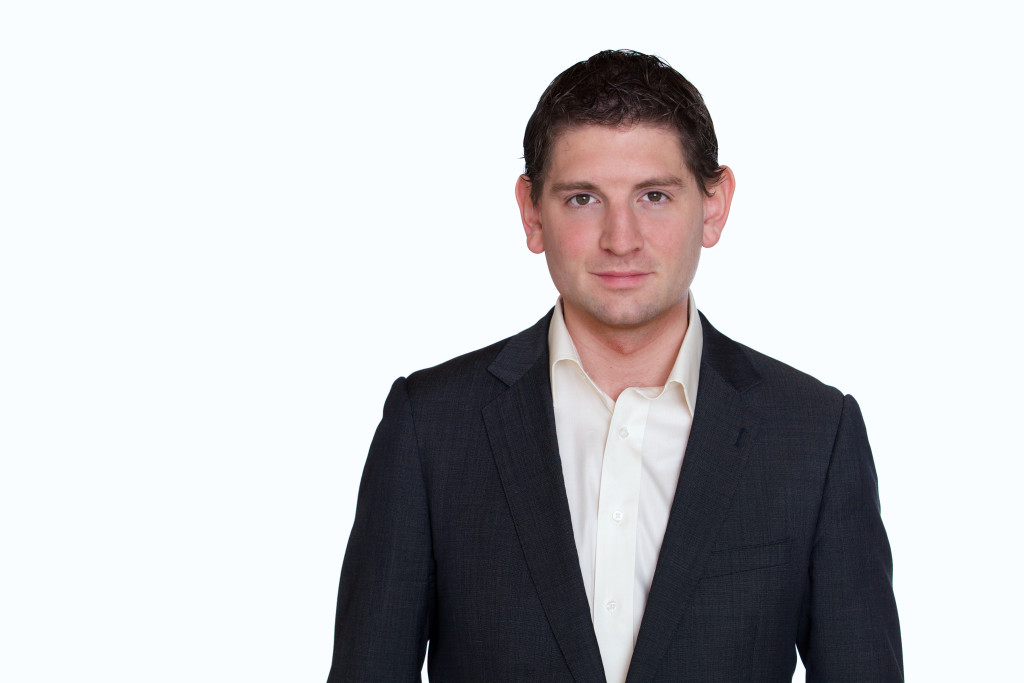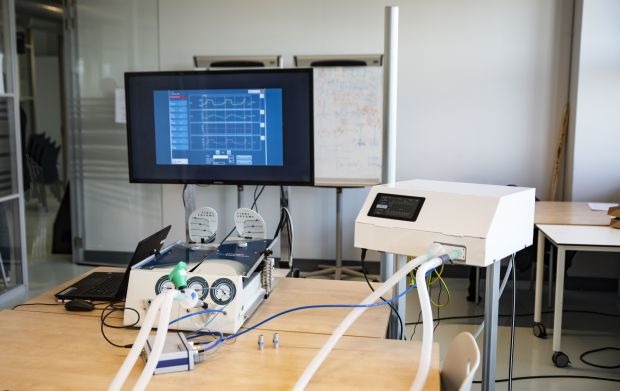
‘Embed innovation within education'
By Jurjen Slump
Universities and institutes of higher education should give researchers greater recognition and support, thereby enabling them to make an impact. There should also be more investment in business development, according to Jan Paternotte, member of the Democrats 66 (D66) parliamentary group in the Dutch House of Representatives. “That’s how you create opportunities to bring good ideas to society.”

When asked for a good example of radical innovation, Paternotte barely hesitates. He immediately suggests AeroDelft, the student team working on the world’s first hydrogen aircraft, and also mentions the energy-efficient Flying-V. “What’s great about the Flying-V is that the design is radically different from existing aircraft, but, in principle, it would not be out of place at any airport gate. It’s no wonder that Airbus has shown such amazing interest.”
Sustainable aviation
It should come as no surprise that Paternotte opts to cite these examples. In addition to education and science, the MP’s portfolio also includes aviation. He is a firm advocate of sustainable aviation, in which innovation will be instrumental. Although technological progress is ultimately the main driver, government also plays an important role in determining the direction and speed with which changes are initiated.
Take the car industry, for example. The requirement that only electric cars will be permitted onto the market from 2030 triggered a huge sustainability effort among manufacturers. Paternotte expects the same to happen in the case of the transition towards sustainable aviation. “The faster the government puts frameworks in place to bring about increased sustainability, the sooner companies will take it seriously and the sooner the Flying-V will be standing at the gate.”
Mission-driven innovation policy
This is why the MP backs the Cabinet’s so-called mission-driven innovation policy, focusing on four major societal themes: energy transition and sustainability; agriculture, water and food; health and care; and safety and security. According to Paternotte, these are the very same themes in which the Netherlands is becoming a pioneer in innovation.
Care robots can help reduce loneliness among the elderly, but you need to involve psychologists in the programming in order to ensure effective communication.” Having linguists working on the development of algorithms that can quickly analyse old texts ultimately ensures you have a better tool. This is also a good example of how scientists can effectively collaborate with their colleagues in the humanities.
Jan Paternotte, Member of Democrats 66 (D66) parliamentary group
Mission-driven innovation policy
This is why the MP backs the Cabinet’s so-called mission-driven innovation policy, focusing on four major societal themes: energy transition and sustainability; agriculture, water and food; health and care; and safety and security. According to Paternotte, these are the very same themes in which the Netherlands is becoming a pioneer in innovation.
Pioneering is essential. “Take a key technology, like artificial intelligence. It’s becoming increasingly important in our society. If you get behind the curve, you will no longer be setting the rules within which the technology can be applied. That increases your vulnerability in multiple respects. It’s only possible to determine the standards if you’re one of the leaders in technology.”
Three per cent of GDP on R&D
This ambition costs money and Paternotte is in favour of a significant increase in investment in development and research in the years ahead. The Netherlands intends to invest 2.5% of GDP in R&D. Paternotte would increase that to 3%. It is important to set a path for growth to formalise this effort. “That way, you are committing yourself for longer than a single term of office, which is essential when it concerns the development of complex technology.”
The MP is also determined that the coronavirus crisis should not result in cutbacks in science and innovation. “We learned an important lesson about that during the last crisis. Then, education cutbacks undermined our long-term earning potential, delaying economic recovery.”
‘Impact not sufficiently part of culture’
So, what demands does an ambitious innovation policy place on universities? In general, they are quite adept at their third core activity: knowledge valorisation. But Paternotte can still see room for improvement. In his view, making an impact is still ‘not sufficiently part of the culture’ of higher education. “Researchers are still judged much more on their academic publications than on their wider impact.”
Improvements can be made in this area, for example by actively sharing knowledge, collaborating and appointing business developers within departments. More funding should be available for that,” says Paternotte.

OperationAIR
In his view, a good example of this is OperationAIR. After the outbreak of the coronavirus crisis, this TU Delft student team developed a ventilator that can be produced quickly and safely, in order to make up for expected shortages. This involved close collaboration with the Dutch Railways (NS), who soon set up a production line to manufacture a component for the ventilator. “We should do much more of that kind of thing, and not only when we’re facing a crisis,” says Paternotte.
This is another area in which frameworks are necessary. Our ambition must be to have an impact. But Paternotte rejects the idea of prescribing the precise details of how it should be done, such as the recent suggestion made by the VVD (Liberal Party) that entrepreneurship be made a compulsory component of all degree programmes. “It’s not up to us in The Hague to determine the contents of the curriculum.”
The way in which aviation companies are currently improving sustainability is not fast enough. We need to get more out of innovation. Radical action will be essential in order to make aviation future-proof
Jan Paternotte, Member of Democrats 66 (D66) parliamentary group
Entrepreneurship
It makes sense for entrepreneurship to feature prominently in degree programmes in which it plays an important role, as in Delft. But for other degree programmes, such as political science, it’s less useful. “I always joke: why make entrepreneurship compulsory for political scientists – we already have so many political parties!”
Other positive developments in education in terms of encouraging innovation include the interdisciplinary student teams, like AeroDelft, and interdisciplinary education. As a member of the Amsterdam City Council, Paternotte was involved in the establishment of the Amsterdam Institute for Advanced Metropolitan Solutions, where students can take the Master’s degree in MADE (Metropolitan Analysis, Design, and Engineering).
Interdisciplinary education
“Making urban issues one of the guiding principles of a degree programme is actually very inspiring,” says Paternotte. The same applies to the business community’s involvement in the AMS Institute, which helps to accelerate innovation.
Interdisciplinary education results in better innovations. “Care robots can help reduce loneliness among the elderly, but you need to involve psychologists in the programming in order to ensure effective communication.” Having linguists working on the development of algorithms that can quickly analyse old texts ultimately ensures you have a better tool. This is also a good example of how scientists can effectively collaborate with their colleagues in the humanities,” says Paternotte.
Ambition
As far as the MP’s own ambitions are concerned, improving the sustainability of aviation will be the main focus in the years ahead. There is a ‘very negative atmosphere’ around aviation, because it is so polluting. But the idea behind it, a system of global connections, is still ‘really positive’. “But the way in which aviation companies are currently improving sustainability is not fast enough. We need to get more out of innovation. Radical action will be essential in order to make aviation future-proof.”